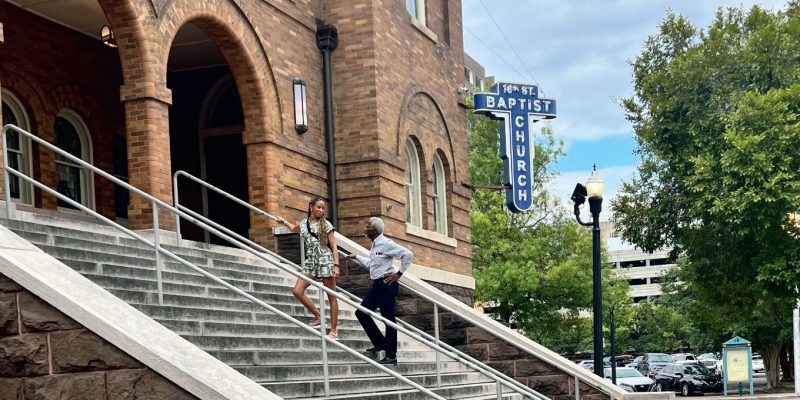Society
Here’s How You Can Be a Genuine Ally to Indigenous Communities in Canada
7 ways non-Indigenous folks can offer their support to Indigenous communities, today, tomorrow and every other day.
by : Nancy Pierri- Jul 1st, 2021

Coast to coast, Indigenous communities are grieving following the discovery of 751 unmarked graves of mostly Indigenous children near the cemetery of the former Marieval Indian Residential School in Saskatchewan, just days after the Kamloops news broke.
Here are seven ways non-Indigenous people can offer help and support during this horrific time.
Donate to Indigenous organizations that provide support for residential school survivors.
A key way to help the Indigenous community is by donating to relevant Indigenous-led organizations that support residential school survivors and their families, as well as those that provide food, shelter and legal aid to First Nations, Inuit and Métis communities across the country.
The Indian Residential School Survivors Society provides survivors of the residential school system with counselling, financial support, and an online platform to share their stories. Their goal is to educate non-Indigenous Canadians about the oppression and discrimination that Indigenous peoples continue to face daily.
You may also consider donating to other organizations that support Indigenous communities in Canada including the KUU-US Crisis Line Society, the Orange Shirt Society, Tk’emlúps te Secwe̓pemc First Nation, the First Nations Child and Family Caring Society, and the Legacy of Hope Foundation.
Educate yourself on the residential school system and its ongoing impacts.
To understand the extensive suffering that Indigenous communities continue to face, one must first understand how residential schools came into existence, who funded and maintained these institutions and how they are still closely tied to Canada’s present-day child welfare system. By doing so, one can fully grasp the long-lasting trauma and become a better ally.
Here are a few educational resources we recommend:
Volume 4: Missing Children and Unmarked Burials
94 Calls to Action
It’s Our Time: Education Toolkit
Indigenous Foundations: The Residential School System
The Canadian Encyclopedia: Residential Schools in Canada
“It’s Gotta Come out” – CBC News
Liberals Table Bill to Make September 30 a National Holiday – Welland Tribune
Aside from books and articles on the horrors of the residential school system, it is also important to learn first-hand from the stories of survivors. We recommended following Indigenous journalists, watching interviews of survivors, reading Sarah Robinson’s Truth and Reconciliation: My Action Plan, and visiting the stories section of the Truth and Reconciliation Commission.
Listen to the stories of survivors while providing them with a safe space to mourn and remember.
A simple, yet essential step in supporting the Indigenous community is by listening. While survivors of the residential schooling system may find it difficult to speak about their traumatic experience, if they do choose to share those stories with you, it’s important to listen with empathy and validate their feelings. Indigenous peoples carry many painful memories and as an ally, your role is to offer support, listen to and respect.
You can also direct them to the following support lines that are available for anyone affected by the long-lasting trauma of residential schools, and those who are tormented by the latest reports.
The Indian Residential School Survivors Society can be contacted toll-free at 1-800-721-0066.
A 24-hour national Indian Residential School Crisis Line has been set up and can be contacted by calling 1-866-925-4419.
Within B.C., the KUU-US Crisis Line Society crisis line is available 24-hours a day, seven days a week and can be reached at 1-800-588-8717.
Write a letter to your Member of Parliament asking the government to recognize and apply the UN’s Declaration on the Rights of Indigenous Peoples.
The 2007 United Nations Declaration on the Rights of Indigenous Peoples is a universal legislation that was initially established to guarantee Indigenous Peoples minimal individual and collective rights, including the right of existence, living free of discrimination, and entitling them to self-determination under international law.
However, the fundamental freedoms provided by the declaration have yet to be enshrined into Canadian law, a sure sign of our country’s lack of accountability. By writing a letter to your Member of Parliament, you can pressure our provincial elites to recognize and apply the UN’s Declaration on the Rights of Indigenous Peoples.
Read the United Nations Declaration on the Rights of Indigenous Peoples here.
Support Indigenous artists, authors and small business owners.
By empowering and supporting Indigenous businesses and creatives, you can help to provide opportunities for economic development in these communities while supporting local arts and culture. If you’re able to, consider buying from Indigenous artists, authors and small business owners as your purchase will have a much larger impact than if you were to have shopped from a big-box retailer.
Read the Truth and Reconciliation Commission report.
To fully understand the tragedies that took place in residential schools, as well as the lingering effects on today’s survivors and their descendants, it is necessary to read (and re-read) the Truth and Reconciliation Commission report. Published in 2015, the report created a historical record of the residential school system with over five million records provided to the TRC by the Canadian Government.
The report explores the horrors that took place, the lasting effects of forced residential schooling, and offers 94 “calls to action” to further educate Canadians on the injustices Indigenous communities still face daily. The report also contains testimonials from survivors who share their stories and experiences.
Read the full report here.
Once you’ve done all of the above, wear an orange shirt.
Orange Shirt Day, which takes place every September 30th, is a day when we honour the Indigenous children who were sent away and forced into residential schools in Canada. Although this is an annual day of remembrance, actions towards recognizing and remembering the genocide of Indigenous peoples should be taken 365 days a year, so make sure you do more than wear an orange tee.
You can purchase your orange shirt from the Orange Shirt Society, an organization working to help Indigenous communities heal from the systemic oppression they faced at residential schools.
Read more:
Celebration, Resilience, and Resistance: A Pride 2021 Playlist by ELLE Canada
Tia Wood Is a Cree and Salish TikTok Creator Sharing the Beauty of Her Culture Online
12 Indigenous-Owned Beauty Brands to Know and Support Now
Newsletter
Join our mailing list for the latest and biggest in fashion trends, beauty, culture and celebrity.
Read Next

Beauty
Dyson Just Launched Its Most Intelligent Hair Dryer Yet
Get ready to upgrade your blowout game.
by : Lauren Knowles- Apr 25th, 2024

Fashion
Meredith Shaw Created a Plus-Size Summer Dress Collection That "Feels Like Candy"
The morning show host joined forces with PENN. to create a curated collection for sizes 14-32.
by : Allie Turner- Apr 25th, 2024

Beauty
ELLE Tried It: Five Serums to Up Your Skincare Game
Members of the ELLE team tested Avène Dermatological Laboratories’ five new concentrated serums. Here's what they thought.
by : ELLE Canada- Apr 25th, 2024




